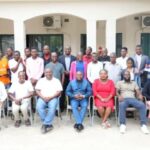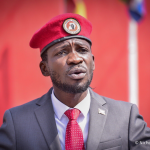DPP regrets blocking the July 20 protests last year, Dausi says DPP is soul searching
Published on January 23, 2013 at 7:21 AM by FACE OF MALAWI
Opposition Democratic Progressive Party (DPP) says the party regrets a number of decisions the party made while in power including attempts to block the mass demonstrations of July 20, 2011.
The party’s Publicity Secretary Nicholas Dausi said this in an interview in Balaka on Sunday after he officially opened a day-long party consultative meeting for the Eastern Region ahead of the party’s national convention scheduled for April this year.
Dausi, who is the chairperson of the convention, said since coming out of government in April, as part of the rebranding process, the party has been doing soul searching to establish issues that caused public discontent for the party to fall out of favour with the people the past three years.
He disclosed that several issues including the party’s attempts to stop the masses from taking to the streets were identified.
“We know it was wrong to try to block demonstrations.
We realise it is better to allow people to demonstrate and express themselves through demonstrations as provided for by the constitution,” Dausi said.
His comments come barely a few days after consumer activist John Kapito organised peaceful demonstrations in Blantyre, Lilongwe and Mzuzu to protest over rising cost of living following government’s tough economic reforms.
Following the peaceful demonstrations, the administration of President Joyce Banda has been widely commended for ensuring that the protests went on without deaths, injuries, arrests and destruction of property, which was not the case during the July 2011 demonstrations when up to 20 people were killed by police.
The other sins the DPP believes it committed while in power, according to Dausi, were the expulsion of British High Commissioner Cochraine Dyet and responding to Catholic bishops’ pastoral letters.
According to Dausi, the ongoing consultative meetings are also part of the process to allow the party’s grassroots leadership to also present other issues of concern which they have gathered from the people at the grassroots level.
The meetings, which are drawing the top three leadership from regional, district and constituency level he said are also soliciting proposals for the party’s policy changes and constitutional amendments.
The meetings will also be held in the party’s other adminstrative regions of central and the north before the scheduled convention from April 17 to 19 where all positions including that of president are up for grabs.
The party’s interim leader Peter Mutharika is so far the only person known to be vying for the presidency.


